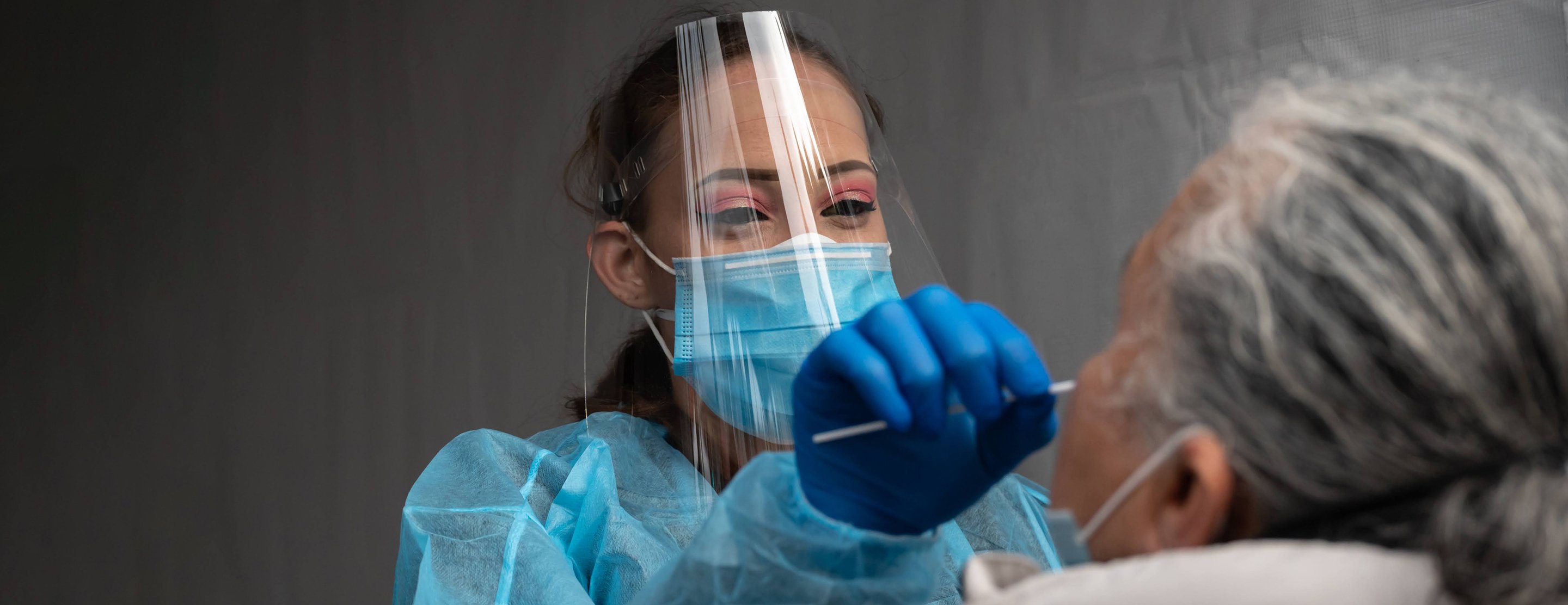| Español |
| Masks are no longer required in most UCSF facilities, but we still strongly recommend wearing one inside any medical building. |

| Español |
| Masks are no longer required in most UCSF facilities, but we still strongly recommend wearing one inside any medical building. |
The symptoms of COVID-19 infections can range from very mild to severe, and some people have no symptoms at all. They can appear in as few as two days up to 14 days after exposure. Explore the Centers for Disease Control and Prevention's COVID-19 symptom checklist to get a better idea of what your next steps should be if you are feeling ill.
Contact your primary care provider to learn about your options for testing and treatment. You can also explore the CDC's guidance on what to do if you were exposed to COVID-19 and what to do if you test positive.
If you're a patient at the UCSF Helen Diller Family Comprehensive Cancer Center, contact the staff for specific instructions before scheduling a testing appointment in MyChart.
If you have a medical emergency, call 911 and notify the dispatch personnel that you might have COVID-19 or are being evaluated for COVID-19 infection.
If you're sick, contact your primary care provider so we can determine the urgency of your situation. If you think you're experiencing a medical emergency, call 911 immediately.
UCSF requires patients awaiting lung transplants to be fully vaccinated against COVID-19. We also strongly encourage this for patients awaiting kidney, liver, pancreas and heart transplants. We updated these policies on May 11, 2023, in response to the end of the public health emergency and the availability of highly effective therapies for COVID-19.
We recommend that patients awaiting organ transplantation follow the recommendations for immunocompromised patients from the Centers for Disease Control and Prevention (CDC). Find guidance on how to protect yourself against COVID-19, what to do if you're exposed and what to do if you get sick.